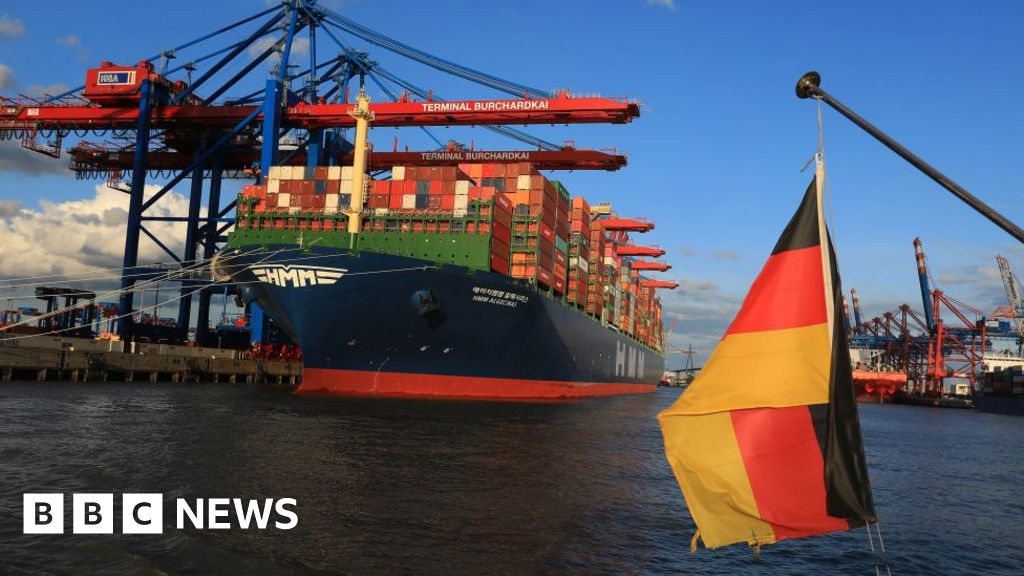Germany's Recession Worsens Amid Energy Crisis, Inflation, and Rising Far-Right Sentiment
-
Germany's economy shrank 0.3% in 2022 and is likely in recession currently due to the energy crisis from the Ukraine war and higher interest rates. There are also long-term issues like infrastructure, labor shortages, and climate change costs.
-
Exports, which have traditionally driven growth, are declining sharply recently, especially to non-EU countries. Germany depends heavily on foreign demand and needs the US and China economies to avoid recession.
-
Inflation hit 3.7% in December, leading consumers to pull back spending across sectors like cars and furniture. People feel a "cultural unease" about the economic outlook.
-
The rise of the far-right AfD party during economic discontent risks antagonizing parts of the population and deterring needed migrant workers. Business leaders worry this could harm innovation.
-
Software firm SAP sees tech investment as a way for companies to overcome challenges. But overall, most forecasts remain pessimistic about Germany's growth in the near term.
